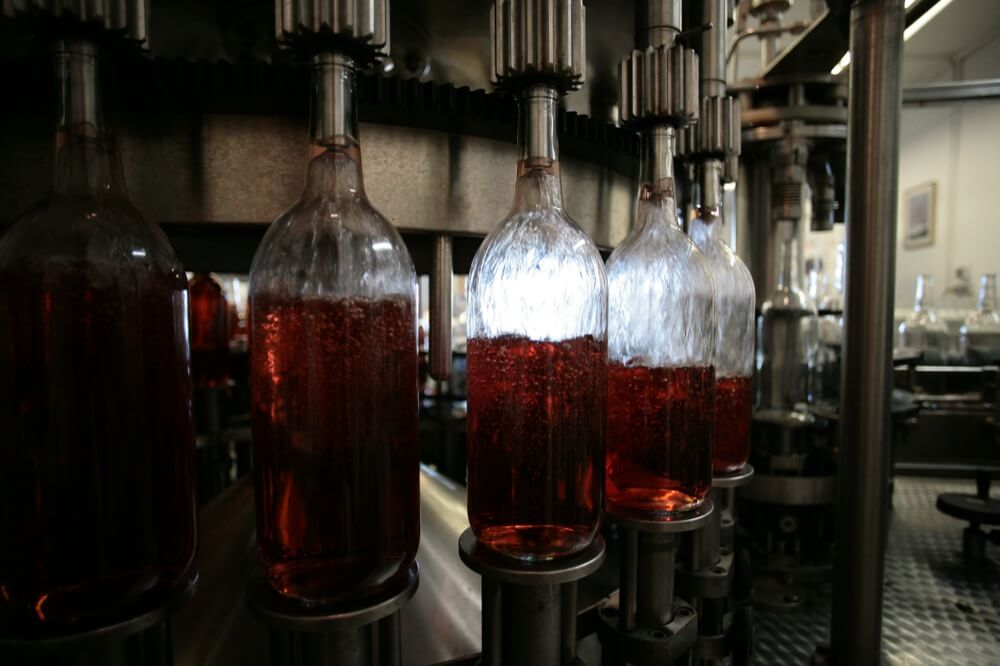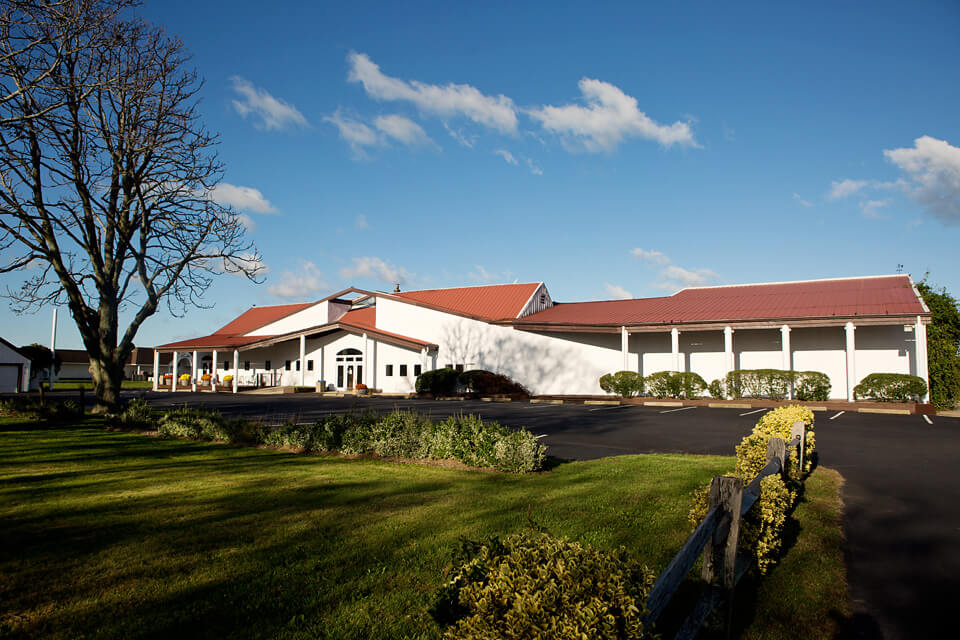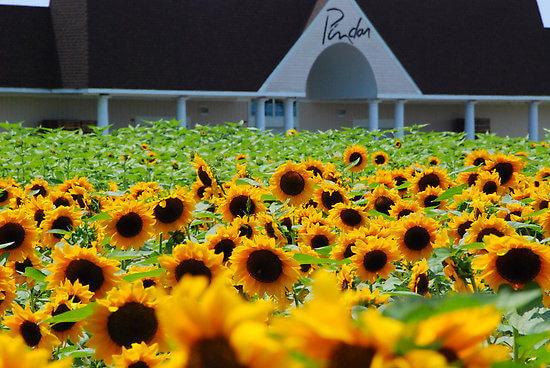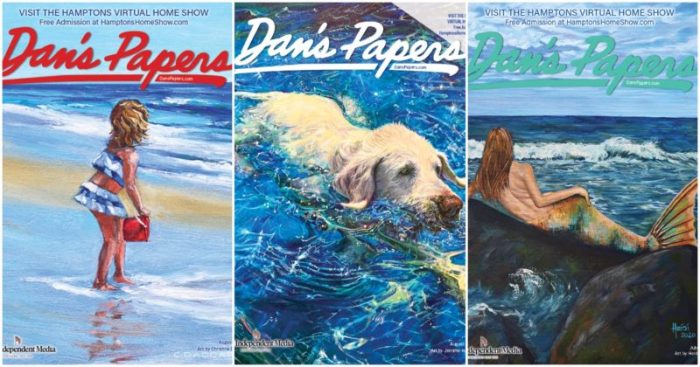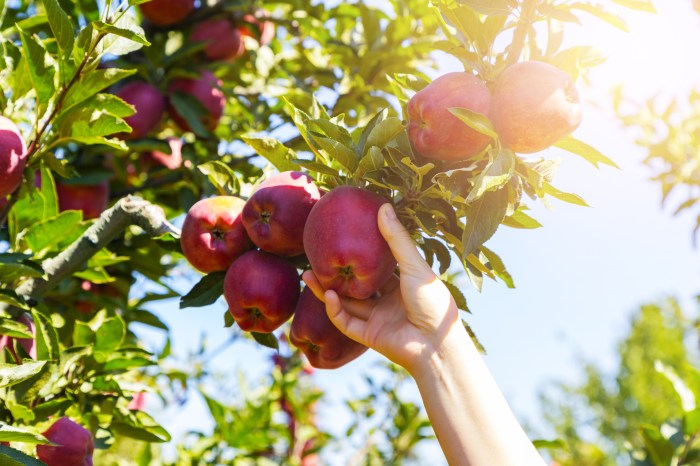Long Island’s largest and oldest family-owned vineyard and winery, Pindar Vineyards, is approaching its 45th anniversary.
The 500-acre vineyard, now run by the second-generation of the Damianos family, on the tight-knit North Fork community — one-third of the trifecta that makes Long Island’s Wine Country — is still producing 70,000 cases of wine a year, and can host around 1,000 visitors on any given Saturday.
amNewYork Metro talked wines and vines with Pindar Damianos, the vineyard’s owner and general manager, and the youngest of the five Damianos children. He started overseeing the whole operation after his father and founder of Pindar Vineyards, Dr. Herodotus “Dan” Damianos, passed away in 2014.
“We’re celebrating 45 years,” Damianos said. “We’re large in scale, but small at heart.”
Born in Hell’s Kitchen and raised on Jerome Avenue in The Bronx, Dr. Dan Damianos carved a niche for himself in Stony Brook working in internal medicine. Pindar Damianos recalled the elder Dr. Dan Damianos digging himself out of poverty and putting himself through college.
The grape has always been part of the Damianoses’ tradition, Pindar Damianos noted. It seemed to be a natural trajectory that his father would look eastward and see unlocked potential.
“We come from Greek origin, so wine has always been part of our family,” Damianos said.
His father thought Long Island could be a great wine-growing region, so he took the leap. The vineyard started with 30 acres and 10 vines, first coming out with Chardonnay wines and then Merlots. When Damianos’ father started Pindar Vineyards in 1979, there was no wine industry. Damianos became one of the original pioneers to take the leap and start a winery.
“What a great legacy,” Damianos said. “It was putting a stake in the ground and claiming a wine industry.”
The youngest Damianos describes the winery as family-oriented, with down-to-earth wines and humble roots.
“The Pindar name became a household name,” Damianos said. “It made Long Islanders who weren’t drinking wines at that time come out here and visit.”
Today, three of the second-generation Damianos children are involved in the winery. One brother, Jason, was tragically lost in a car accident in 2016, but the family continues his legacy through his offshoot winery, Jason’s Vineyard, in Jamesport.
Another Damianos manages the Duck Walk Vineyards, yet another Damianos stronghold founded by Dr. Damianos on the Long Island wine trail.
“All of us have our hands in the winery,” Pindar Damianos said. “Some of our staff have been with us for 20-plus years. We have a great team that works with the family and that’s what makes it fun.”
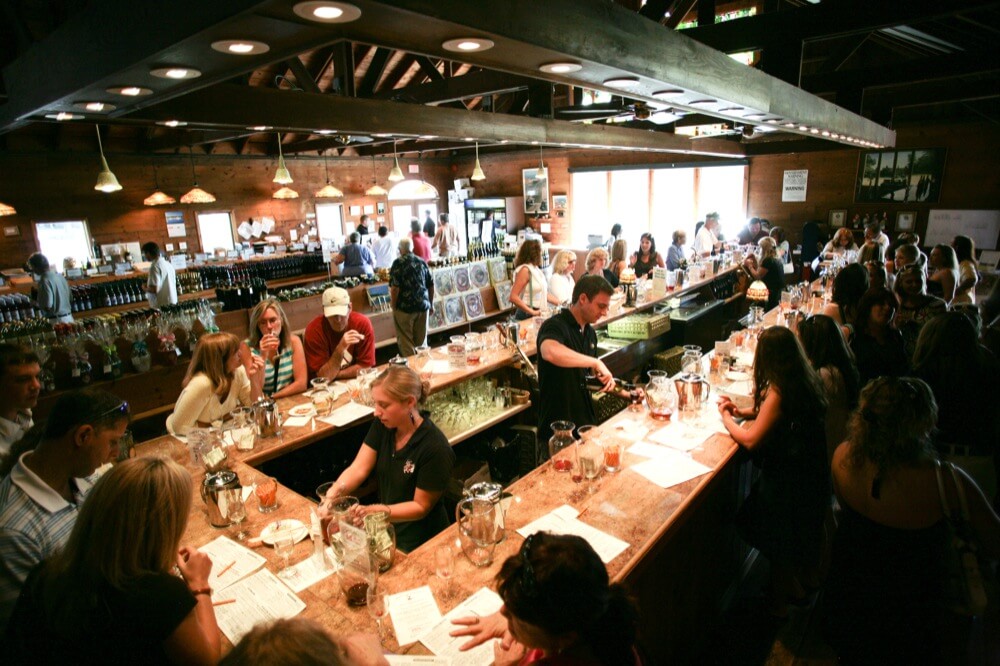
While starting a winery business on untouched land demonstrated the eldest Damianos’s ability to pivot to the unknown, the youngest Damianos said that if you were to have asked the doctor what his greatest passion in life was, he would have simply replied, “helping people.”
“I got that from him as well,” said Damianos, who is a chief for the local North Fork’s Southold Fire Department. “I have that same drive to help people.”
Damianos recalled his younger years running around the winery, bottling, carrying wine cases, and rolling barrels up and down the corridors. He pointed out the four main aspects of the wine business: the growing of the grapes, the winemaking, the distribution side, and the tasting room.
Damianos himself doesn’t hide behind desks and can be found at the winery on any given day, he said. He’s involved in just about every aspect that churns a winery’s gears.
“I’ve been doing this since I was six,” Damianos said. “I’m not afraid to work hard.”
He’s placed high hopes for his son to continue the Pindar Vineyards legacy atop the crimson and gold fabric that is Long Island’s wine industry.
“I hope that he continues the legacy like I did for my dad,” Damianos said. “It’s very important that the industry grows and have all the wineries that we have.”
The youngest vintner has immersed himself in wine country on both the East Coast and West Coast, where he attended California State University, Fresno. But Long Island’s Wine Country is different from other regions — another thing to be proud of.
Just what makes Long Island ripe grounds for good wine? The beautiful, maritime climate, for starters.
“We’re surrounded by water,” Damianos said. “We have a beautiful summer, an early spring. Just like they like it. They love warm sun.”
The winery’s best-selling wine continues to be the Winter White, an “off-dry blend” described as “semi-sweet and refreshingly well-balanced with floral aromas” the winery has been making for all its 45 years. Damianos described the Winter White as an “easy drinking white wine” that some customers drink almost religiously.
“Winter White has always been top wine that we sell,” Damianos said. “It’s good for everybody’s palate. It’s terrific with all different types of food.”
If you walk into your local wine shop from Manhattan to upstate New York to the whole island, you’re most likely going to see Winter White from Pindar, he added.
Another popular wine at Pindar Vineyards is the Pythagoras, a baby Bordeaux blend with Merlot, Cabernet Sauvignon, Cabernet Franc, Petit Verdot, and Malbec. It’s a blend that Pindar Vineyards created for its 25th anniversary, and 20 years later, the Pythagoras is going strong and steady.
“That’s a terrific red wine,” Damianos said. “It’s non vintage and gives the winemaker some more flexibility when he makes the blend.”
The third best selling wine is the Sauvignon Blanc, Damianos said.
While it depends on the varietal, Pindar wines are aged for at least 12 months and up to 36 months in either American oak or Hungarian oak.
“We make beautiful wines,” Damianos said. “It’s all about continuing that for another 50 years.”
The winery initially started with Chardonnay and Merlot and has evolved over the years to include more Riesling, Sauvignon Blanc, and Pinot Grigio wines. If the vineyard spots another interesting variety that could stand on its own, the product line has room to expand.
“We’ll continue to plant more varietals,” Damianos said. “We still have a lot of growing space that could be planted.”
Pindar Vineyards is what Damianos called a “starting to finish” business.
“One thing about Pindar is we grow it all,” Damianos said. “We make it all, we bottle it all, and we sell it all at the same property.”
Damianos said this summer, he would love people from New York City to come out to the North Fork, a region British GQ called the “cooler cousin of the Hamptons.”
“I don’t think we have to, at this point, sell ourselves,” Damianos said. “Long Island is definitely a wine industry and destination from top to bottom. Everybody makes great wine.”
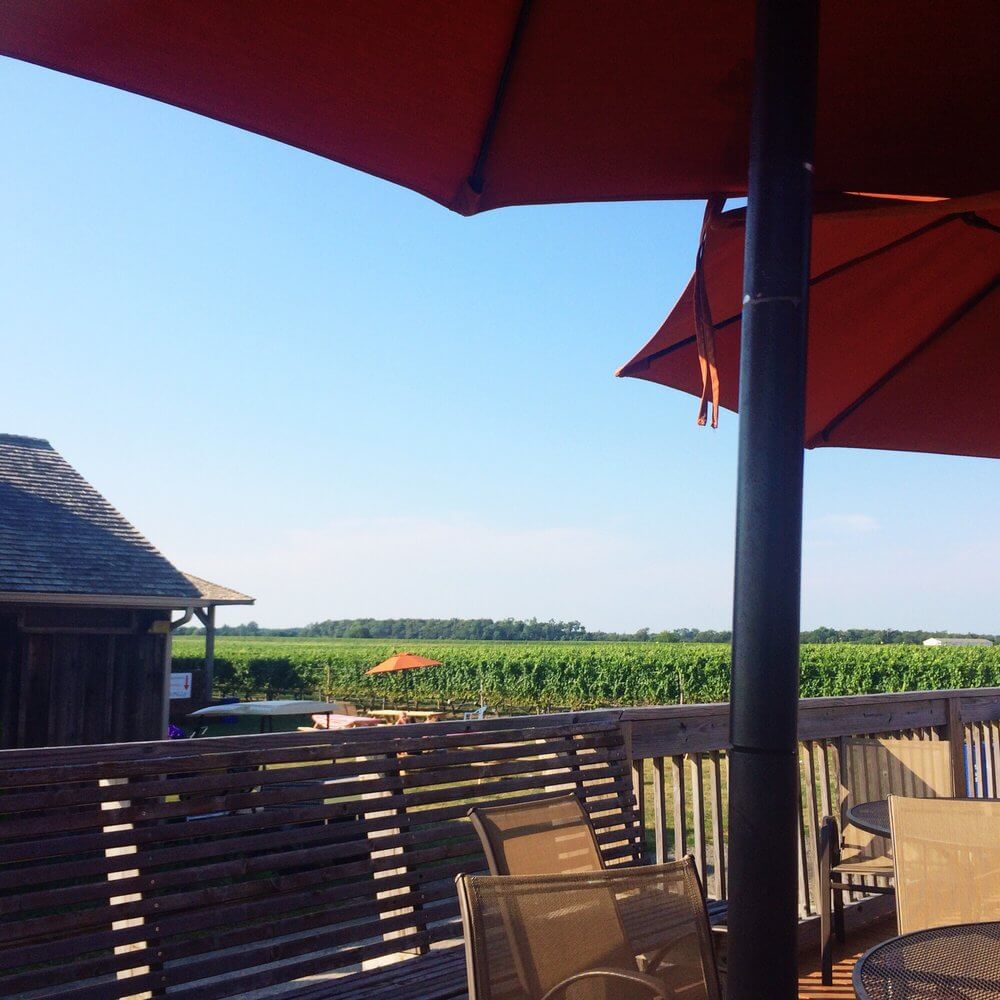
The tasting room is open seven days a week and features five wines from the winery. Pindar Vineyards touts its private tastings and tours, and offers a fun-twist to their tours — a “Champagne, Chopin & Caviar” tour in November. Beyond the traditional tastings and tours, Pindar Vineyards organizes sunset watchings, live music, art and painting workshops, and even a 5K run through the Pindar vineyards. If you’re a Long Islander, you may already known about the local perks.
“First of all, you’ll find someone that gives you a handshake and welcomes you to the winery,” Damianos said. “Obviously, we educate you about wine, our region, and about Pindar. We’re in the business of wine, but I want people to have a great experience.”
The latest innovation the winery is testing out is a new bottling line that arrived in April from Italy: a screw cap for its 2022 Rosé. This new bottle will start selling in mid-July.
“That’s the first Pindar wine with a screw cap,” Damianos said. “We’ll see how our customer base feels about it and if they like it, maybe we’ll continue to do some other wines.”
While some might appreciate screw caps solely for its convenience factor, Damianos pointed to two sciences behind screw caps that led his team to experiment with them. Screw caps have more “age-ability because you’re not dealing with a natural product like a cork that can dry out” and helping those, especially older folks, who would rather spin a cap off than channel their inner hulk to muscle a cork out.
“I’ve talked to customers that are getting up in age and it’s difficult for them to use a corkscrew,” Damianos said. “Maybe they have arthritis in their hands or something like that.”
Damianos shared his family’s deep love for the farm and its workers and acknowledged some realities of being in the business of wine, including facing strikes from Pindar farm workers — the first farm workers to unionize in New York — after the state authorized farm workers to unionize at the start of in 2020.
“It takes time to go through a process until you can meet in the middle and everybody’s happy on both sides,” Damianos said. “We’re almost to the point where we’ve done our back and forth and if this is going to help their quality of life, then that’s what it’s all about.”
The winery is now counting down the days until its big 50th anniversary. Damianos insisted the time is nigh for New Yorkers to scurry on over to North Fork. Day trip? Easy, Damianos said. Jump in a Jitney and high-tail it to wine heaven. With North Fork as New York City’s backyard, Damianos said there’s no excuse to not come out and experience it.
“Get in the car, and you’re two hours away from God’s country,” Damianos said. “Come out here and experience what your backyard has to offer: beautiful restaurants, beautiful beaches, great wine, great seafood. What else could you ask for?”
